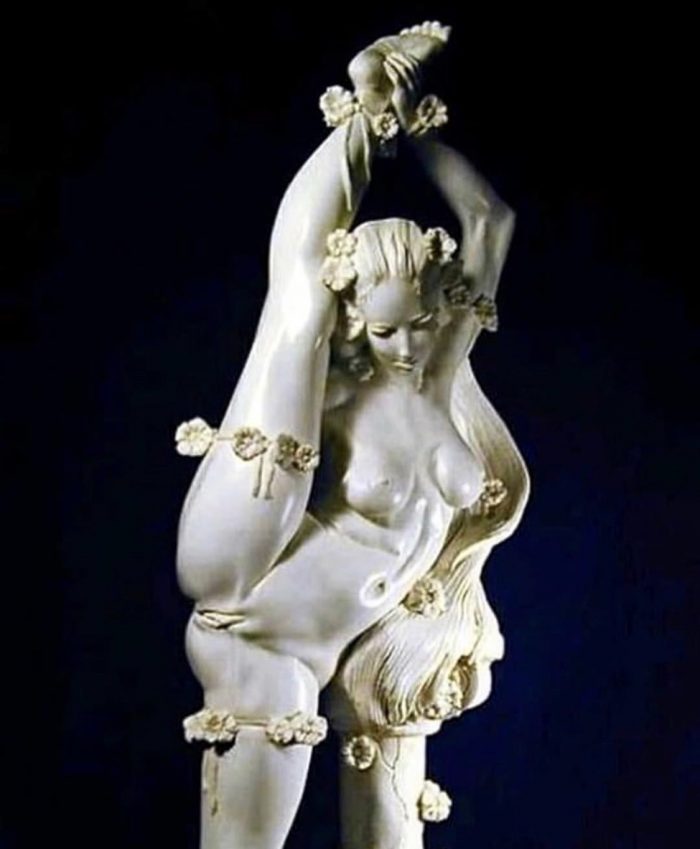“Only someone who is ready for everything, who excludes nothing, not even the most enigmatical, will live the relation to another as something alive and will herself draw exhaustively from her own existence.” — Rainer Maria Rilke
One of the most significant keys to female liberation lies in sexual wholeness, free of shame or story.
Sexual wholeness basically comes down to owning your desire, feeling good about receiving pleasure, feeling free to meet your own sexual needs and safe expressing your sexuality. Sexual wholeness can take many forms – it can look like self-pleasure, partner sex, periods of conscious celibacy and more.
From my experience of being a creative woman, I can understand why Tantrics might declare celibacy; at times there’s a great deal of drive I derive from stewing in my own juices without sharing with another. Yet, there reaches a point where the primal urge to merge and create ecstasy through union takes over.
Women were never designed to be virgins! Having a well pleasured, activated, the creative womb is our birthright. As is holding life and death within us. As is sexual union, which can be an expression of our power, clarity, compassion, connection, and bliss.
Nevertheless, sex is still a big sticking point where females fear themselves and each other.
A pronounced division remains between women who are considered wanton or pure. In the dominant cultural mythology, a false belief runs rampant that women who are sexually free are somehow disrespecting themselves. At the same time, jealously stews, directed towards women who feel good about their sexuality.
There are endless mythologies around sex that lead to chaos and confusion for women on a path towards sexual wholeness. We are taught, outwardly and subliminally, that “correct sex” is an immaculate conception. Therefore, women are doing something inherently wrong and sinful by expressing their sexuality. Sure, we have instances of famous pop stars capitalizing off the taboo nature of indulging in their “sinful expression,” but does this bring us any closer to models of women expressing their sexuality for themselves and for their own pleasure? And do these over the top displays of masculinized sexuality in a female form actually lead to more sexual wholeness for women on a mass level?
Consider the mythology that female desire is sinful and that prince charming will swoop into the rescue if a woman remains pure.
How might this prevent a woman from forming an uncompromising relationship with her sexuality and desires?
Where might she choose performance over wholeness? Unchallenged mythologies such as these obscure our ability to see what is actually happening and available to us. In sex, we have the ability to heal and bond in a deeply intimate way, but not if we are acting from a limited place or performing sex at the expense of our own experience. When women are shamed (whether externally or through their own judgments,) for expressing their sexuality, they can shut down, becoming cut off from themselves and from other women.
In exterior social roles, the times are changing. Women are high-powered executives and men can stay home with the babies. Aforementioned pop stars can blatantly display their assertive sexuality and conversations around consent are hitting the mainstream. But this evolution still leaves ample room for women to turn inward and see what truly lights them up and originates from a place of wholeness. It takes two to create life. It also requires what is both feminine and masculine to maintain balance within an individual. However, in such a male-driven culture, we still need to come home to our innately female power. And the best place to start is by cultivating our sexual wholeness and encouraging the same from the women around us.
As Rainer Maria Rilke wrote in 1904 somewhat prophetically about the times we currently stand in:
“The girl and the woman in their new, individual unfolding, will only in passing be imitators of male behavior and misbehavior and repeaters of male professions…someday there will be girls and women whose name will no longer mean the mere opposite of the male, but something in itself, something that makes one think not of any complement and limit, but only life and reality: the female human being.”











Read 0 comments and reply